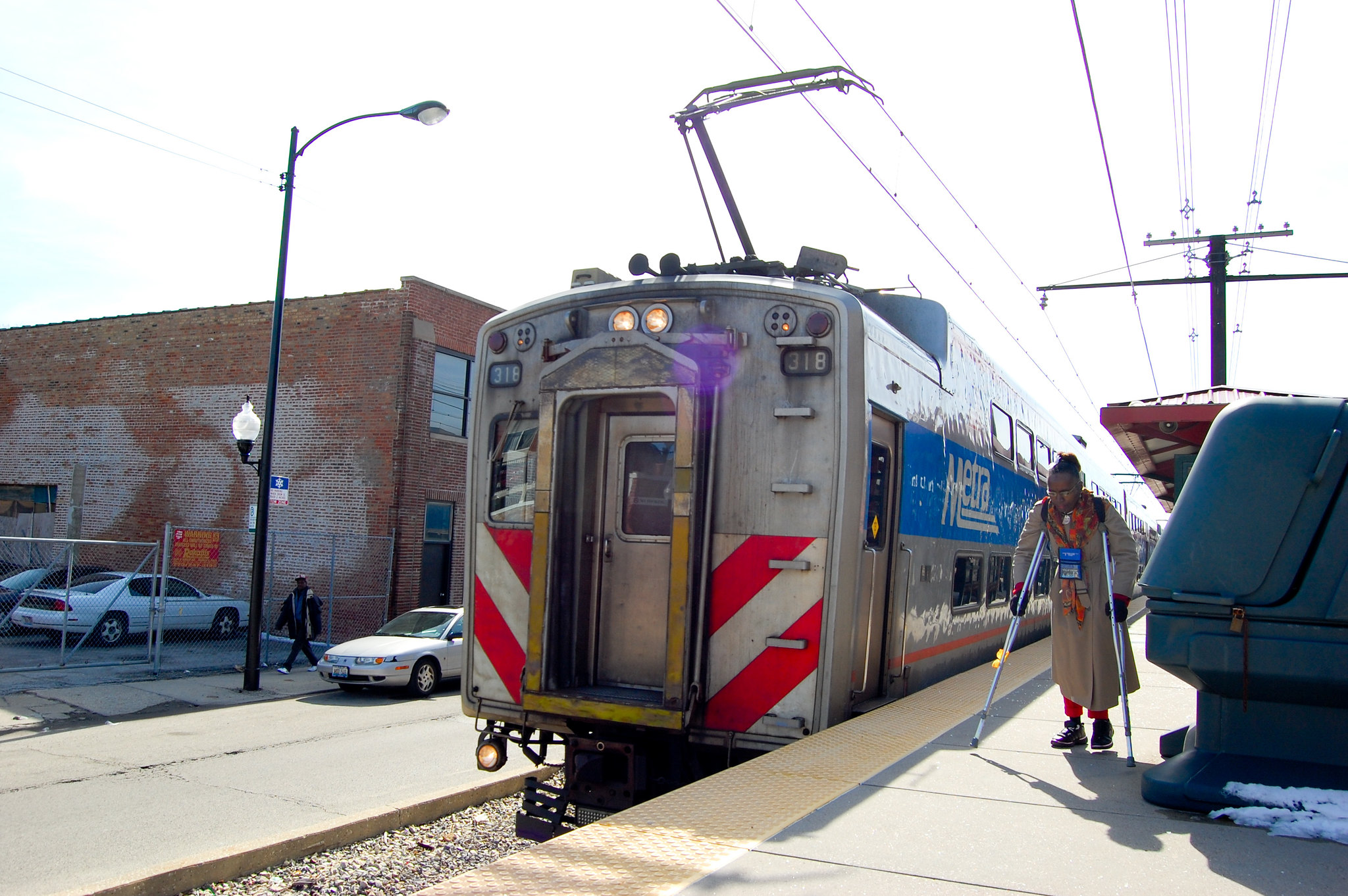Earlier this month, Cook County board president Toni Preckwinkle announced during her annual budget speech that the county is finally moving forward with the long-awaited plan to lower fares on Metra's Electric District and Rock Island District lines on the South Side and south suburbs, dubbed the South Cook Fair Transit pilot.
The plan had previously faced resistance from Chicago mayor Lori Lightfoot, who defeated Preckwinkle in the last mayoral election. Lightfoot complained that the program would cannibalize CTA ridership, even though the county offered to subside the CTA and Metra for any revenue losses.
Cook County is currently working with the transit agencies to implement the three-year pilot program, with a goal of launching in early January 2021 with a reduction in Metra fares, plus new Pace bus service, according to a statement from the county. Metra and Pace are expected to approve intergovernmental agreements with Cook County this fall.
“The goal is to increase service and decrease costs for some of our community’s most underserved residents who experience longer commute times than North Side residents and who may spend up to half of their income on transportation expenses,” Preckwinkle said in a statement. “Now is the time, given the economic challenges from COVID-19, to showcase our commitment to equity by addressing the critical need in the communities most severely impacted by the pandemic.”
For starters, the pilot would establish 50 percent reduced fares on the MED and RID lines, the county said. This requires no changes to Metra’s fare structure and can be done right off the bat.
The plan also includes expansion of Pace’s 352 Halsted Service with the goal of improving the hours and frequency of service between the 95th Street Red Line station and Pace's Chicago Heights terminal on weekdays, Saturday and Sunday, the county said.
In addition to subsidizing any loss of revenue by the impacted agencies, Cook County also won a $330,000 Accelerating Innovative Mobility grant from the Federal Transit Administration to bankroll community outreach around the program. This will include digital surveys, socially-distanced pop-up events and online public input events.
“Metra looks forward to implementing this pilot and improving transit on the South Side and in the south suburbs,” said CEO Jim Derwinski in a statement. “We want to thank President Preckwinkle not only for her leadership on this issue, but also for Cook County’s financial assistance.”
“We always appreciate the opportunity to explore new ways to make public transportation more accessible for all,” stated Pace executive director Rocky Donahue. “Thanks to the County’s financial support, we can continue with pilots like this to find the best ways to improve our region’s transit system.”
The Cook County Department of Transportation and Highways planned the pilot in partnership with the transit agencies, along with the Chicago Metropolitan Planning Agency and the Regional Transportation Authority.
Unsurprisingly, given Lightfoot and the CTA's previous opposition to the program, the mayor and the CTA weren't quoted in the county's news release. However, the CTA provided the following statement to Streetsblog
The agreement between Metra and the County will provide lower fares for residents of the South Side and south suburban Cook County, bringing them in line with CTA fares systemwide. CTA, along with the other regional service boards and the county, will be closely watching the results of this pilot, so that we can fully understand the impacts on regional ridership and travel patterns. This information will help inform our ongoing dialogue with the county and the service boards about our shared goal of improving regional transit and ensuring robust transit options. The best way to achieve these goals is to pursue viable options that are sustainable in the long-term, from both an operational and financial perspective.
I'm sensing a bit of shade against the pilot in that statement, the CTA raising the specter of the the program being unsustainable because it currently requires a subsidy from the county. However, making Metra a more affordable and convenient option may increase transit use across the board. The CTA might directly benefit from increased bus trips connecting commuters from their homes to Metra stations.
A source involved in the conversation around the pilot told Streetsblog a earlier this month that Lightfoot and the CTA were still not completely on board with the plan, which is why there are no plans for free or reduced transfers from Metra to the CTA, although there will be more affordable transfers to Pace.
Active Transportation Alliance spokesman Kyle Whitehead addressed that issue in a statement to Streetsblog. "We urge Mayor Lightfoot and CTA to fully participate in the pilot and provide low-cost transfers between Metra and CTA. All South Siders deserve access to transit that is affordable, frequent, and fast."
"Our elected officials need to be working together to build a regional transit system that works for all residents, especially low-income people who have few other options," Whitehead added. "This isn’t about Metra trains competing with CTA trains and buses. It’s about investing in and improving both and letting people choose the option that works best for them."
Here's hoping that Lightfoot and the CTA can eventually be persuaded. In the meantime, let's celebrate the fact that the South Cook Fair Transit pilot, including reduced fares and improved service, is finally about to leave the station.





